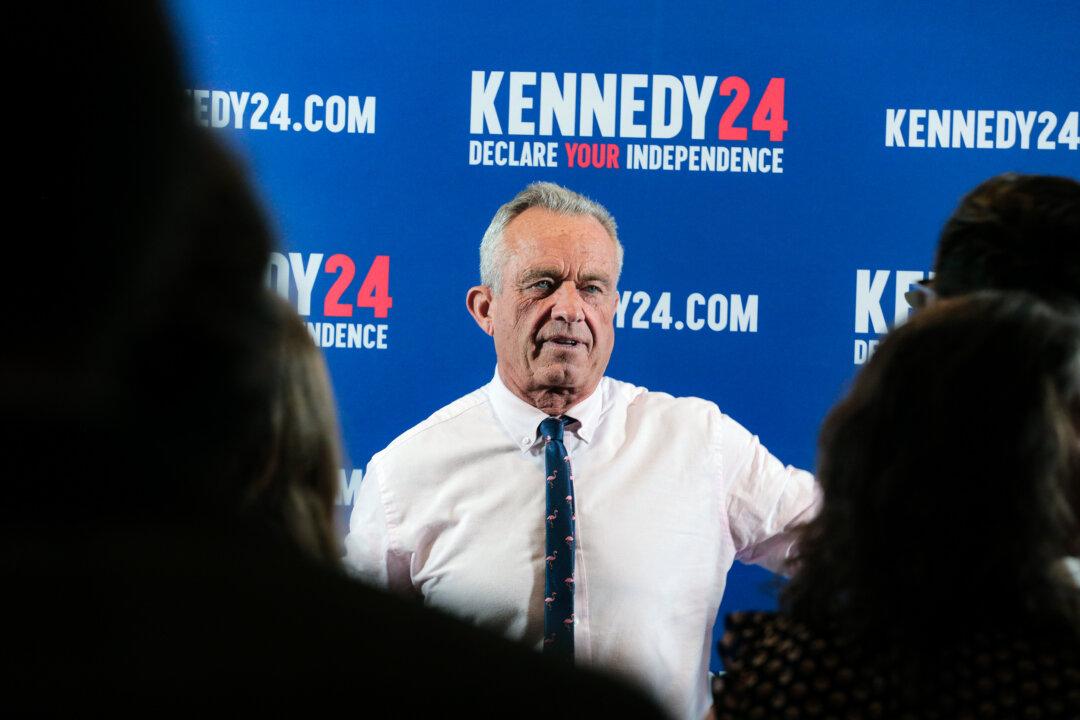Robert F. Kennedy Jr. believes he will meet the qualifications established by CNN to participate in the June 27 presidential debate, but it’s uncertain if President Joe Biden will take part in the forum if that happens.
President Biden and President Donald Trump, the presumptive Democrat and Republican nominees, agreed to take the stage on June 27 on CNN, the outlet confirmed in a May 15 press release. The current and former presidents will also meet for a Sept. 10 debate televised by ABC.





